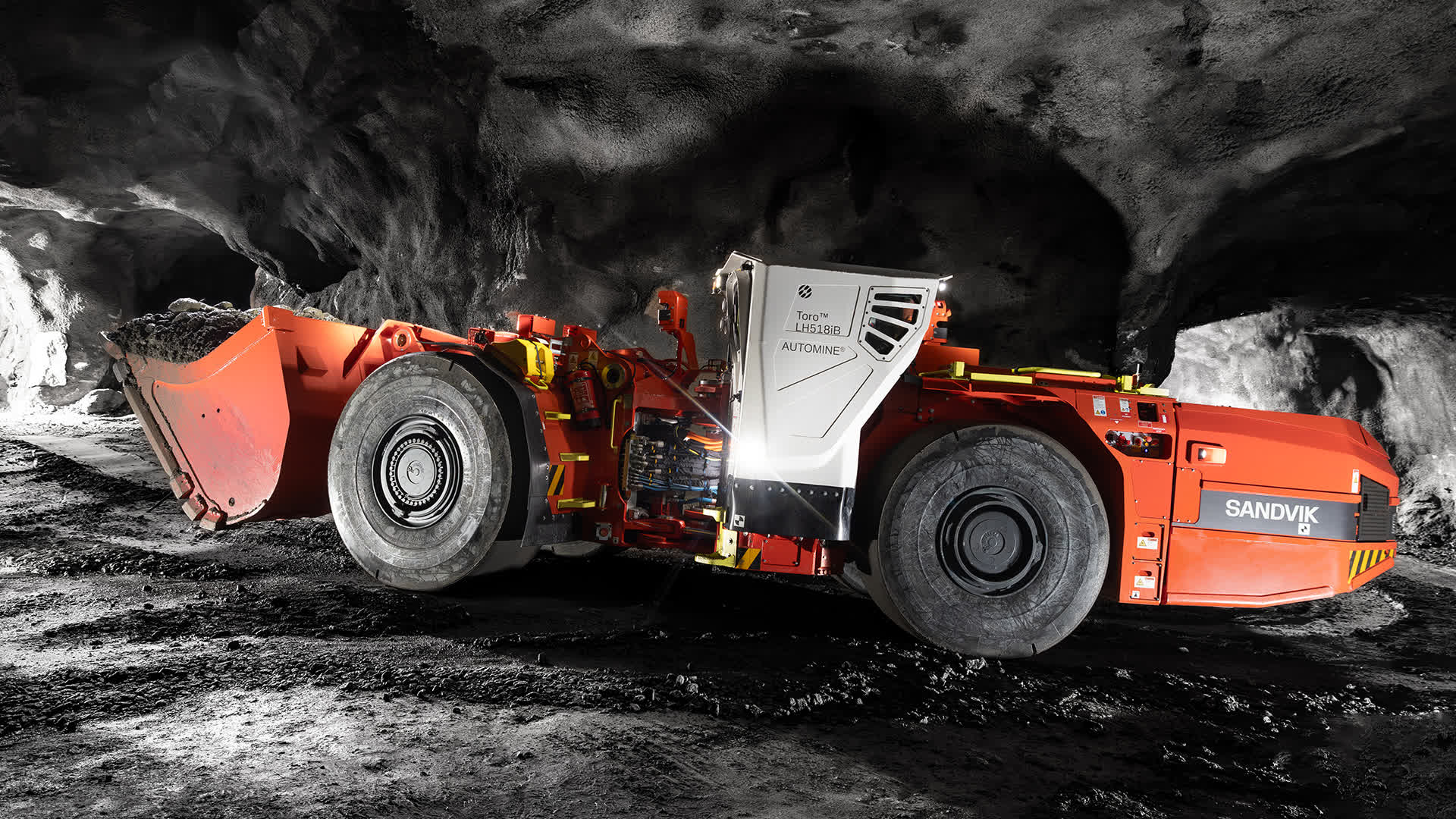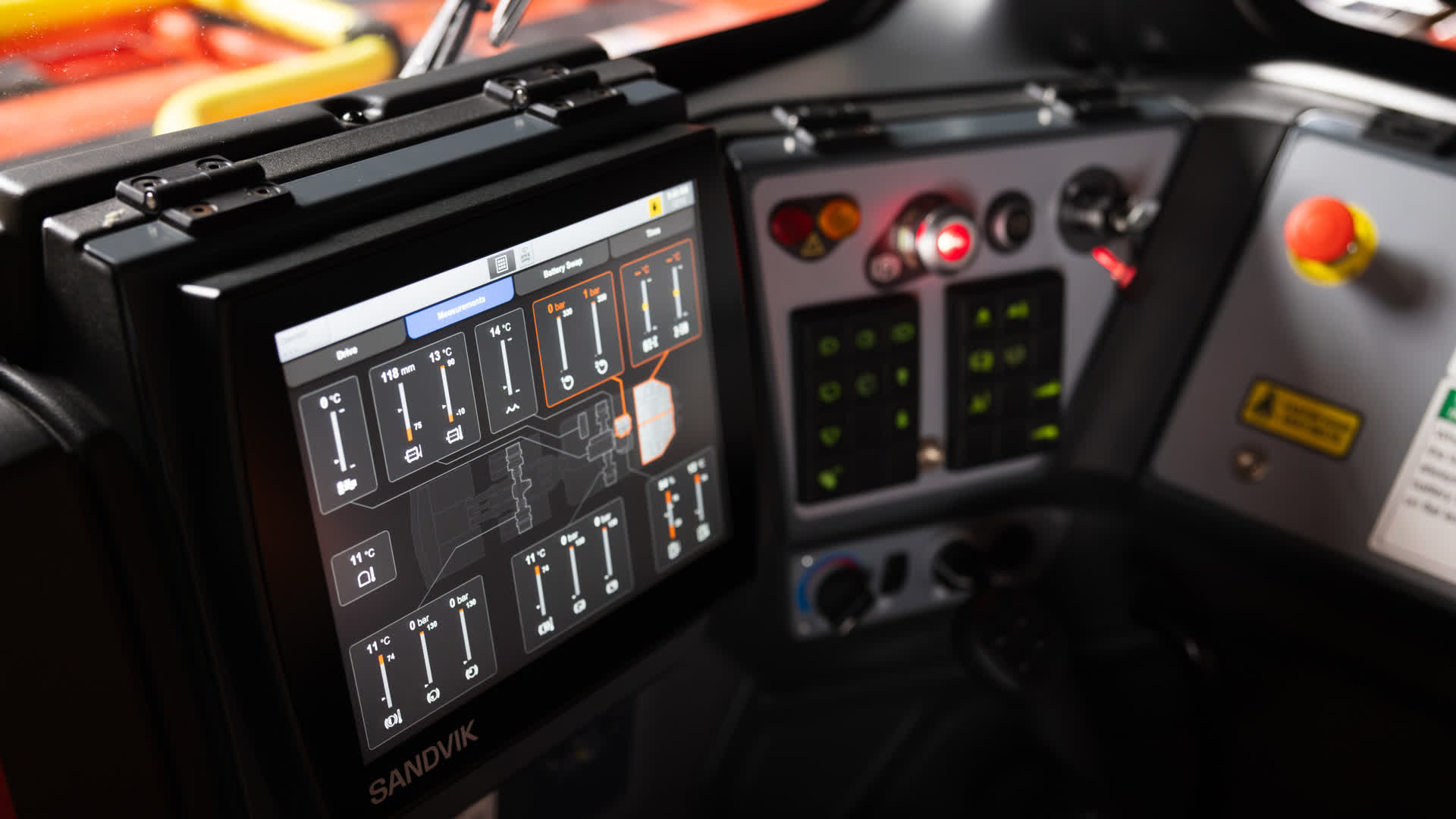What just happened? Sandvik, a Swedish manufacturer of mining equipment, has announced the deployment of two fully automated electric loaders at Canada’s New Afton gold and copper mine. These heavy-duty machines, weighing an impressive 18 tons each, have been operational in a designated test area since November.
The Sandvik LH518iB measures 12 meters in length, 3.1 meters in width, and 2.3 meters in height. It’s powered by a high-performance 540 kW electric drivetrain, capable of delivering 6,000 Nm of torque for rapid acceleration and efficient bucket filling. The loader features a massive battery, and when it runs low, it can autonomously swap out for a fully charged replacement.
The New Afton deployment marks just the beginning. Operators are preparing to transition the loaders from the test area to the mine’s “C-Zone” early next year, a section rich in valuable mineral reserves.
Once in the C-Zone, the machines will streamline operations and significantly enhance cycle times at Canada’s only block cave mine.

Block caving is an underground mining technique in which ore is deliberately weakened, allowing it to collapse under its own weight into a funnel-shaped chamber for efficient extraction. Efficiency is paramount in this process, and these loaders are designed to enhance it significantly.
Sandvik highlights that adopting electric and autonomous loaders at New Afton will reduce ventilation needs, heat, noise, and greenhouse gas emissions compared to conventional diesel-powered loaders operated by humans. Additionally, the autonomous functionality addresses the ongoing challenge of a labor shortage in the mining industry.

Of course, this raises an important question: what about jobs? Are these autonomous loaders simply high-tech replacements poised to displace human workers? The answer isn’t clear yet, but it’s reasonable to anticipate that if New Afton’s deployment proves successful, other mines may follow suit with their own fleets of autonomous electric machinery.
This shift comes as demand for the minerals required to build electric vehicles and renewable energy infrastructure continues to soar. The International Energy Agency projects that mineral demand from EVs alone will grow 30-fold between 2020 and 2040, with the need for lithium and nickel spiking by 40x. Meeting these demands will require cutting-edge extraction technologies and innovative mining practices.









Leave a Comment